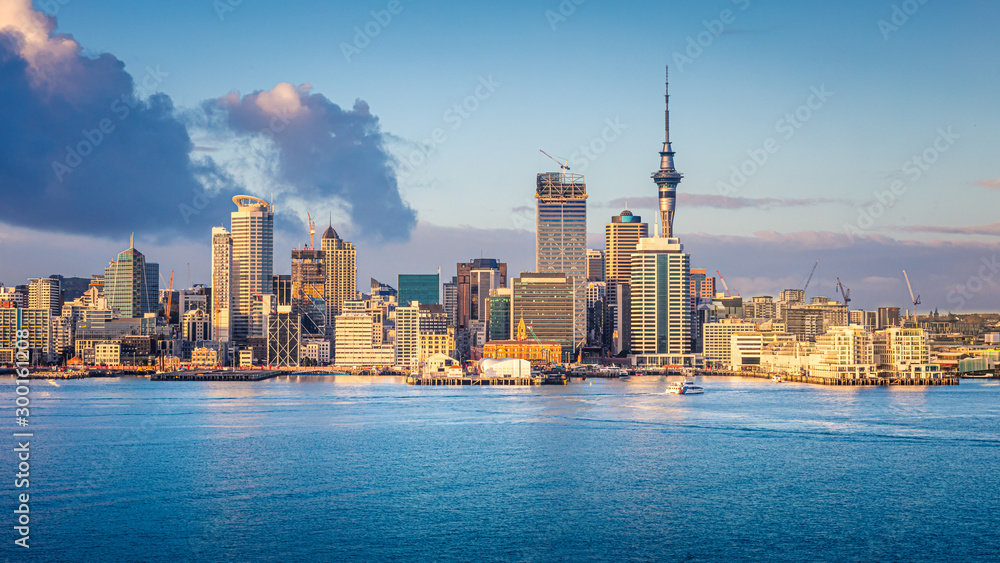
Executive Summary
This report provides an in-depth analysis of the socio-legal and digital landscape for transgender and gender-diverse individuals in Aotearoa New Zealand, specifically addressing the user's query concerning "transgender escorts and transsexual adult dating ads." The analysis finds that New Zealand's unique decriminalization model for sex work creates a rights-based framework for transgender sex workers. This legal environment is complemented by a robust network of digital platforms that facilitate both commercial and social connections. Furthermore, a comprehensive community-based support system exists to provide a wide array of services.
However, a deeper examination reveals that these progressive frameworks exist alongside significant systemic challenges. These include documented police bias, high rates of violence and discrimination, and a growing tide of online and offline transphobia. The report concludes that while New Zealand's legal and community support systems are globally progressive in principle, they are undermined by a profound disconnect between policy and the lived experience of transgender and gender-diverse individuals, particularly concerning issues of safety and equitable access to justice. The path forward requires not just robust policies, but their consistent and compassionate implementation.
1. Introduction: The Socio-Legal Context of Transgender Life in Aotearoa New Zealand
This report examines the user's query not as a simple search for classified advertisements but as an entry point into a multi-layered analysis of the transgender experience in Aotearoa New Zealand. The analysis synthesizes legal, sociological, and digital data to provide a holistic view of the environment in which transgender people operate. The report begins by establishing the foundational legal and human rights context, which sets New Zealand apart from many other nations.
The legal framework for sex work in New Zealand is globally distinct. The Prostitution Reform Act 2003 (PRA) decriminalized prostitution, removing legal barriers to the buying and selling of commercial sexual services. This approach stands in contrast to the "Nordic Model," which views prostitution as inherently harmful and criminalizes the purchase of sex to reduce demand. The PRA's explicit purpose is to safeguard the human rights, welfare, and occupational health and safety of sex workers.
This rights-based approach to sex work is consistent with New Zealand's broader legal framework for transgender people. The law establishes the legal right for an individual to publicly identify as any gender, regardless of the sex they were assigned at birth. Anti-discrimination laws ensure that transgender people have the same rights as cisgender people in all areas of public life, including employment. This creates a foundational environment in which individuals can freely choose their profession, including sex work, without fear of legal reprisal based on their gender identity.
An interesting philosophical tension emerges when comparing the Prostitution Reform Act 2003 with the Human Assisted Reproductive Technology Act 2004 (HART Act). Both pieces of legislation regulate the commodification of the human body, but they arrive at diametrically opposed conclusions. The PRA frames the sale of sexual services as a legitimate form of labor to be protected, citing the right to free choice of employment. Conversely, the HART Act prohibits commercial surrogacy, arguing that the practice is harmful to the "health, safety, and dignity of present and future generations". The legal and ethical distinction lies in the state's perception of the specific commodity. The commodification of sexual labor is legally permissible and subject to labor regulations, while the commodification of reproductive capacity is framed as an inherently harmful practice that must be prohibited. This divergence highlights the complexities and sometimes contradictory nature of New Zealand's legal philosophy regarding bodily autonomy and commerce.
1. The Transgender Work Environment in Aotearoa New Zealand
The work environment for transgender people in New Zealand, including those in the commercial sex industry, is characterized by a complex duality of strong community support and significant systemic challenges. While community-based organizations serve as a critical lifeline, ongoing violence and discrimination present a profound gap between legislative intent and practical experience.
The Support Infrastructure: Community and Resilience
A robust network of community-based organizations serves as a critical lifeline for transgender people in New Zealand, addressing the "looking for just new friends and fun" aspect of the user's query. These organizations provide spaces for social connection and offer essential services that fill gaps left by formal institutions.
New Zealand has a comprehensive network of transgender community organizations. Key examples include RainbowYOUTH (Auckland, Wellington, etc.), OutLine Aotearoa (nationwide), and Gender Minorities Aotearoa (nationwide). These organizations provide a wide array of support, including confidential peer support, counseling services, and social groups. RainbowYOUTH, for instance, offers a Trans Peer Support service that provides one-on-one assistance with transitioning, identity, and accessing gender-affirming healthcare.
The social groups and community centers run by these organizations are designed to be safe, inclusive, and supportive environments. RainbowYOUTH’s social groups are explicitly "smoke, alcohol & drug free spaces where young people can connect with one another in a friendly, supportive and inclusive environment". This focus on creating a safe space is a deliberate response to the potential risks present in other online and offline environments. These organizations also provide practical, everyday support. For example, RainbowYOUTH offers a free community wardrobe with identity-affirming clothing and makeup, and in partnership with other organizations, provides housing support for young people facing insecurity. These services address the practical challenges faced by transgender people that are often overlooked by formal systems.
The existence of these comprehensive community support networks is not a mere convenience; it is a direct, community-led response to systemic failures. Data from the 'Counting Ourselves' report reveals that transgender people in New Zealand face significant challenges, including high rates of psychological distress, self-harm, and unmet needs for gender-affirming healthcare. The presence of these organizations demonstrates the resilience of the community in the face of adversity. By providing essential peer support, housing, and mental health services, these groups fill critical gaps left by state institutions, painting a picture of a community actively engaged in its own well-being and self-determination.
| Comparative Analysis of Transgender Community Support Organizations |
| Organization: RainbowYOUTH |
| Locations: Northland, Auckland, Taranaki, Bay of Plenty, Wellington. |
| Services: One-on-one peer support for sexuality and gender, social groups, housing support, and a free community wardrobe for gender-affirming clothing. |
| Focus: Youth-led services for queer, gender diverse, intersex and takatāpui youth and their whānau. |
| Organization: OutLine Aotearoa |
| Locations: Nationwide support line, Auckland-based peer support and counseling. |
| Services: Nationwide, free, and confidential support line (0800 OUTLINE) and online chat, specialist counseling, and trans and non-binary peer support. |
| Focus: Comprehensive support for rainbow people and their whānau, with a focus on mental health and well-being. |
| Organization: Gender Minorities Aotearoa |
| Locations: Nationwide, with a base in Wellington. |
| Services: One-to-one peer support, information, and advocacy for transgender people of all ages, cultures, and backgrounds. |
| Focus: Run by and for transgender people, including binary, non-binary, intersex, and irawhiti takatāpui. |
Systemic Challenges: Violence, Discrimination, and the Gap in Protection
While New Zealand's policies on paper appear progressive, the lived reality for many transgender and gender-diverse individuals is one of ongoing violence and discrimination. The 'Counting Ourselves' report and other research provide a data-driven account of these challenges, revealing a profound gap between legislative intent and practical experience.
The 'Counting Ourselves' report highlights significant health inequities and staggering rates of psychological distress within the community. The research found high levels of unmet needs for gender-affirming healthcare, often compounded by prohibitive costs and a fear of mistreatment by medical professionals. The psychological toll is severe, with the report documenting high prevalence of deliberate self-harm (50%), serious consideration of suicide (53%), and attempted suicide (10%) in the 12 months prior to the 2022 survey.
Experiences of violence and discrimination are also widespread. Trans and non-binary people have an increased likelihood of reporting discrimination, threats of violence, and forced sexual intercourse compared to the general population. The report also notes that organizations meant to provide safety, such as schools, often tolerate bullying against them. The analysis also points to a direct link between online spaces and real-world harm. A report by The Disinformation Project found that an event in March 2023 corresponded with a measurable rise in both the volume and tone of transphobia online, which was followed by a near-doubling of reported hate crimes motivated by gender identity between 2022 and 2023.
This data on violence is starkly compounded by documented failures of the New Zealand police to provide adequate protection. While the NZ Police has a stated policy of having Diversity Liaison Officers and a process for updating gender records, research indicates that the lived reality for many victim-survivors is one of systemic bias and mistreatment. A survey found that 79% of trans and non-binary people experienced bias or mistreatment from the police, often including overt homophobia and misgendering. Police were reported to have laughed, used slurs, and refused to file reports, even in cases of sexual assault.
The most alarming finding from this research is that 51% of trans and non-binary people said police involvement made them feel less safe. This statistic reveals a profound failure of the institutional system. It creates a cycle where a community already at high risk of violence and distress is unable to rely on the very body tasked with providing protection. The systemic gap between the policy of decriminalization and protection and the lived experience of violence and institutional failure is a core challenge facing the transgender community in New Zealand.
| Key Statistics on Violence and Discrimination Against Transgender and Non-Binary People in New Zealand |
| Source: 'Counting Ourselves' Report (2022) |
| Psychological Distress: 50% of respondents reported deliberate self-harm in the past 12 months, and 53% reported serious consideration of suicide. |
| Violence & Discrimination: Increased likelihood (compared to the general population) of experiencing discrimination, threats of violence, and forced sexual intercourse. |
| Unmet Healthcare Needs: High levels of unmet needs for gender-affirming healthcare persisted between 2018 and 2022 due to prohibitive costs and fear of mistreatment. |
| Source: Backbone Collective & Hohou te Rongo Kahukura Police Report (2024) |
| Police Bias: 79% of trans and non-binary people experienced bias or mistreatment from the police, including misgendering and overt homophobia. |
| Minimization of Violence: 44% of all participants said police minimized the violence and abuse, and 30% said police took the side of the abuser. |
| Impact on Safety: 51% of trans and non-binary people said police involvement made them feel less safe. |
2. Finding Connections and Services: The Digital Landscape
The user's query about "ads" must be understood within the context of the digital platforms that have largely replaced traditional classifieds. These platforms are central to facilitating both commercial and social connections for transgender people in New Zealand.
Dedicated dating and social networking applications, such as Transgender Dating App Translr (TransD) and Taimi, are specifically designed to be inclusive of transgender individuals and their admirers. These apps provide a range of features, including swiping functionality ("Sparking"), the ability to share daily life moments, and distance-based searching to find local connections. Photo verification is a key feature that is encouraged to help users meet real and reliable people nearby. Additionally, mainstream LGBTQIA+ apps like Grindr serve as major hubs for social networking and casual hookups, and their availability on the web offers greater accessibility for users on any device without a download.
A critical element of these platforms is their focus on creating a sense of community and providing safety features. TransD's slogan, "Trans people are beautiful, too," serves as an explicit message of affirmation and its purpose is to help users feel more confident and stunning. Similarly, Taimi positions itself as an inclusive space for "fluid dating" with a zero-tolerance policy for bullying and harassment. The presence of features like photo verification and anti-bullying policies is a direct response to the specific safety and privacy concerns that exist within the LGBTQIA+ community. The need for these measures underscores the broader societal challenges faced by the community, which are discussed in a later section.
The legal standing of these digital platforms exists in an ambiguous "grey zone." The Prostitution Reform Act was passed in 2003, before the widespread dominance of modern social and dating applications. The law prohibits advertising for commercial sexual services in mediums like "newspapers" and "periodicals" but does not explicitly address online spaces. The Department of Internal Affairs states that adult websites must comply with the Films, Videos, and Publications Classification Act 1993, which requires age verification and promotion of safer sex practices. This raises a key legal question: do profiles on apps like Translr or Grindr constitute "advertisements for commercial sexual services" under the PRA, or are they subject to the different rules for adult content websites? The platforms the user is interested in operate in this ambiguous space between the two legal frameworks, posing unique challenges for both government regulation and user safety.
Regarding the matter of pricing, no information on the costs of services was found in the research material provided.
| Features and Functionality of Select Transgender and LGBTQIA+ Dating Apps |
| App: Translr (TransD) |
| Target Audience: Transgender people, crossdressers, ladyboys, bisexual people, and their admirers. |
| Key Features: Sparking (swiping to like/dislike), Moment Sharing, Distance Searching, Profile Filters, and Verified Photos to meet local people and ensure authenticity. |
| Purpose: Described as a platform for "trans dating," from serious relationships to casual hookups. |
| App: Taimi |
| Target Audience: All-inclusive LGBTQIA+ community. |
| Key Features: "Fluid dating" concept with multiple gender and sexual orientation options, zero-tolerance policy for bullying, and profile verification to create a safe environment. |
| Purpose: Designed for discovery, connection with a diverse community, and self-expression. |
| App: Grindr |
| Target Audience: The world's largest social networking app for LGBTQ people. |
| Key Features: Web version available for faster browsing and chatting on any device, no download required. |
| Purpose: Facilitates social networking and connections, including casual hookups, for a diverse LGBTQIA+ audience. |
3. The Legal Framework: Protections and Their Limits
The legal protection of transgender sex workers in New Zealand is comprehensive in principle, yet it contains significant contradictions and limitations that can expose certain groups to harm. The Prostitution Reform Act 2003 (PRA) is the most relevant piece of legislation for this topic. The Act, aptly known as "The New Zealand Model," decriminalized prostitution, brothel-keeping, and living off the proceeds of someone else's prostitution, making the buying and selling of commercial sexual services legal for individuals aged 18 and over. Its purpose, as stated in section 3, is "to decriminalise prostitution... and to create a framework that—(a) safeguards the human rights of sex workers and protects them from exploitation".
The law also explicitly recognizes sex work as legitimate employment. This is articulated in a clear legal syllogism: since everyone has the right to free choice of employment and just and favorable conditions of work, and because sex work is recognized as work, individuals have the right to freely choose a career in the commercial sex industry under just and favorable conditions. This principle is a cornerstone of the New Zealand Model and a key reason why transgender people in New Zealand have the same labor rights and protections as workers in other occupations. The New Zealand Prostitutes Collective (NZPC) works to support these rights for transgender sex workers, among others.
Despite its progressive intent, the PRA contains significant contradictions and limitations. While the sale of sexual services is decriminalized, advertising is not fully deregulated. The Act restricts advertisements for commercial sexual services in most broadcast and print media, allowing them only in the classified sections of newspapers or periodicals.
A particularly critical flaw in the PRA is its exclusion of migrant sex workers (MSWs) from its protections. Section 19 of the Act, added as an anti-trafficking clause, makes migrants on temporary visas who work in the industry liable for deportation by Immigration New Zealand (INZ). This legislative carve-out creates a legally unprotected class of workers, making them more vulnerable to exploitation and trafficking—the very issues the Act was designed to prevent. This disparity reveals a fundamental shortcoming in the New Zealand Model: its foundational human rights principles are not extended to all people working within the industry, creating a legally sanctioned vulnerability for a marginalized group.
| Key Provisions of the Prostitution Reform Act 2003 | Key Contradictions and Limitations |
| Decriminalization of Prostitution: The Act decriminalized prostitution, brothel-keeping, and living off the proceeds of someone else's prostitution, allowing the buying and selling of sexual services to be legally permissible for those aged 18 and over. | Advertising Restrictions: General advertising for commercial sexual services is prohibited, with limited exceptions to classified sections in newspapers and periodicals. |
| Recognition of Labor: Sex work is recognized as a legitimate form of employment, granting sex workers the same labor rights, workplace protections, and access to healthcare as other workers. | Exclusion of Migrant Workers: Section 19 of the Act makes sex work illegal for individuals on temporary visas, who are then susceptible to deportation. This legal disparity can lead to greater exploitation for this group, undermining the Act’s core purpose. |
| Rights-Based Framework: The Act's stated purpose is to safeguard the human rights of sex workers and protect them from exploitation, empowering them by removing the illegality of their work. | Enforcement and Safety Gaps: As detailed later, the legal protections do not always translate into equitable safety and treatment in practice, particularly concerning police interactions. |
4. Conclusion: Synthesis and Recommendations
The transgender experience in Aotearoa New Zealand is defined by a complex interplay of a rights-affirming legal framework, a dynamic digital landscape for both commercial and social connection, and a robust community support system. The existence of online profiles for escorts and social connection is made possible by the decriminalization of sex work and is supported by a rich tapestry of community networks. However, the safety of those using these profiles is constantly at risk due to a documented reality of violence and inadequate institutional responses.
The analysis confirms that New Zealand's progressive policies are a necessary but insufficient step towards true equity and safety for the transgender community. The current state is one where the promise of the law is often disconnected from the lived experience of violence and discrimination. The report's final synthesis is that the path forward requires not just new legislation, but the consistent, compassionate, and equitable implementation of existing laws by state institutions, combined with the continued resilience and advocacy of the community itself.
Based on this analysis, the following recommendations are proposed:
- For Policymakers and Legislators: It is imperative to close the legal loophole that excludes migrant sex workers from the protections of the Prostitution Reform Act 2003. This would align the law with its stated purpose of safeguarding all sex workers from exploitation. Policymakers must also prioritize and fund the recommendations from reports like the Backbone Collective's, particularly by establishing a specialist family violence police unit and mandating comprehensive, victim-survivor-centered training for police officers.
- For Law Enforcement: The New Zealand Police must undergo significant institutional reform to address the documented biases and mistreatment against transgender and non-binary people. This requires a cultural shift towards honoring the needs of victim-survivors, ensuring that police involvement makes people feel safer, not less safe.
- For Community Organizations: Organizations like RainbowYOUTH and Gender Minorities Aotearoa should continue to receive funding and support to provide essential services such as peer support, housing assistance, and mental health services. Their role in filling the gaps in government-provided care is vital for the well-being of the community.
- For Technology Platforms: Platforms that facilitate transgender social and commercial connections must strengthen their safety features and content moderation to combat the online transphobia that directly correlates with real-world hate crimes. They should work in collaboration with community organizations to ensure their platforms are genuinely safe and affirming spaces for all users.





